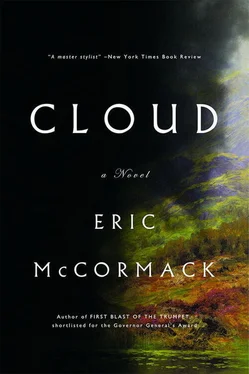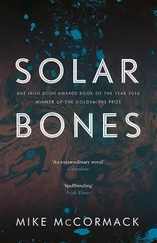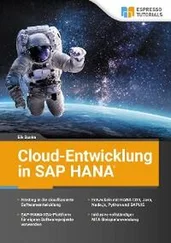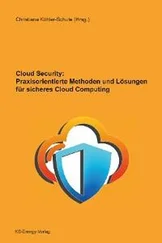On occasion, one of Alicia’s board meetings might be held at our house during daytime when Gordon and I were at the office. The board members were invariably gone by the time we came home. When I’d ask about them, Alicia would wrinkle her nose to let me know I wasn’t missing much. But I’d no doubt she was the perfect hostess.
Only rarely did she or Gordon have anyone else over to the house on a purely social basis — except for Jonson. In fact, aside from him, they seemed to desire no close friends outside of each other, and now me.
In that sense, things hadn’t changed for me since my life in the Tollgate: I was part of another very un-extended family.
Gordon, as promised, came with me on my earliest sales efforts during that first year. These journeys meant we were both gone from Camberloo, sometimes for as long as a month. Alicia didn’t complain. She’d been well trained in the demands of running a business.
As for the journeys themselves: we always went first class if it was available, whether by ship, or plane, or train, and we stayed in good hotels. Of course there were exceptions. At times we could only travel on roads so primitive we needed Land Rovers to tackle them. Once in a while there weren’t even roads of any sort and we had to resort to riverboats or even smaller craft such as canoes, which were particularly hard on Gordon.
“If I have to spend another hour in one of these things I’ll never be able to stand up again,” he used to complain.
Nor was it always possible to find decent hotels. In bush towns or on remote islands, the hotels were often so primitive they even lacked electricity. The toilet might consist of a little cubicle on stilts over a river or where tidal water would scour away the evidence. Sometimes, the only shower was an overhead tank of water located outdoors, amongst palm trees and flowering shrubs. We’d have to tiptoe cautiously around to avoid scorpions or spiders. Such hotels weren’t much better than the verminridden huts I’d sometimes stayed in when I was a tutor.
At the actual business meetings we attended on these trips, Gordon was always just as sharp and efficient as when I’d first seen him at the La Mancha mine. But at night, back in our quarters, those remarkable eyes were sometimes almost lifeless, his face pale and drawn. I fully understood then how wearing these trips had become for him and why he’d been so keen on passing them on to me.
And, for the first time, I really began to confront the ethical problems that went along with the job.
THAT FEBRUARY we were in La Coruna, a provincial capital in the northwestern region of the Andes. Gordon had given a successful presentation at one of the big strip-mine companies and they’d bought two of our pumps and a ventilator.
Out of the blue, another opportunity arose. We were at the hotel preparing to head back to Canada when Gordon received a lengthy phone call from the manager of an old-established gold mine near the town of Santa Cruz, eighty miles away, asking for his help.
Apparently, for at least a hundred years, waste water from this gold mine had emptied into the Rio del Sol, a river that ran past Santa Cruz. Out of deference to the town, the waste had always been directed round it by means of a pipe that opened into the river a mile or so farther downstream.
In the course of a hundred years the townspeople had benefited economically from the mine and never had any cause to complain about the waste.
But just three days before, a tricky situation had arisen. The pump controlling the waste pipe had become sluggish, as it often did over the years if too much debris gathered in the metal grille over its intake valve. Stopping the pump to clear this debris safely and then restarting it could take as long as a full day.
So, the usual procedure was just to keep the pump running while workers removed the grille. In that way, they could clean it and put it back on without any major suspension of work.
Two workers had been delegated to perform this very operation. With the pump still running, they’d managed to unscrew the rusty bolts that held the grille on. But as they were trying to lift it out they slipped and were sucked into the uncovered intake valve. The huge impeller blade then became a very efficient meat grinder.
This kind of horror had happened, apparently, on several occasions over the decades during grille-cleaning time, and not much fuss was made about it. What caused the present crisis was that the oversized spanners and crowbars the men had been using were also sucked in. As a consequence, the impeller, its gears, its massive cast-iron valve, and its housing were shattered, as was the connection to the escape pipe. The lagoon immediately began backing up and spilled directly into the Rio del Sol just above the town. The fact that the river flowing past the town had turned bright orange, the fact that the fish all floated belly up — these might have provoked only a mild reaction.
But the smell! It was a public relations nightmare for the gold mine. The stink of rotten eggs given off by the chemicalfilled water permeated Santa Cruz day and night, causing babies to cry and appalling their parents and the citizens in general. Especially upset were the mayor and the bishop, whose town hall and palace, respectively, stood on the riverbank.
Civic outrage resulted. For the first time in its long, profitable history the gold mine was ordered closed.
“AND WHAT EXACTLY would you like me to do?” I heard Gordon ask the manager on the other end of the phone.
Gordon was well known amongst the mining fraternity. The manager of the Santa Cruz mine wondered if he could come and make a speedy assessment of the condition of the broken pump.
“If you send transportation, I’ll come down tomorrow morning,” Gordon said. “I’ll bring my colleague with me.”
IN THE MORNING, a company car picked us up at our hotel and took us to the mine, a two-hour drive away. It was a typical sprawl of buildings with corrugated roofing amidst high mounds of broken rocks. The river ran nearby. We were met by the manager, a small, hollow-chested man who reminded me a little of my father: a cigarette dangled from his lips and he had a chronic cough.
The broken pump, he informed us in quite good English, was located in “the lagoon.” That was the romantic-sounding word used by the mining industry for the septic ponds that resulted from cleaning the gold with a mix of chemicals. The cleaning process lasted for two weeks out of each month. The contaminated water was then forced, by means of a huge hundred-year-old cast-iron pump, into a two-mile-long pipe. The pipe, in turn, disgorged its contents into the Rio del Sol safely below the town. The only human beings affected by it were natives whose villages were on the banks of the river far below when the waste pipe was in use. These villagers would see the Rio del Sol turn an orange colour, for the waste water contained clay from the galleries of the mine, mixed with cyanide and a number of other chemicals used to clean the gold.
For two weeks after such a discharge all the fish in the river would die. Then the water would clear, the fish would return, and everything would seem normal. Or relatively normal, though there were unsupported reports of villagers who had died from what appeared to be cyanide poisoning.
The mine manager told us the owners wanted things returned to that quite acceptable situation.
“They say the pump must be repaired or replaced pronto so that we can begin operation again,” he said.
He now took us to see the problem for ourselves.
The lagoon was several hundred yards away along a pathway from his office. In the sticky heat, in the silence broken only by the squawking of birds in the surrounding jungle, I sweated. Gordon looked as cool as ever and impervious to our escort of mosquitoes.
Читать дальше











